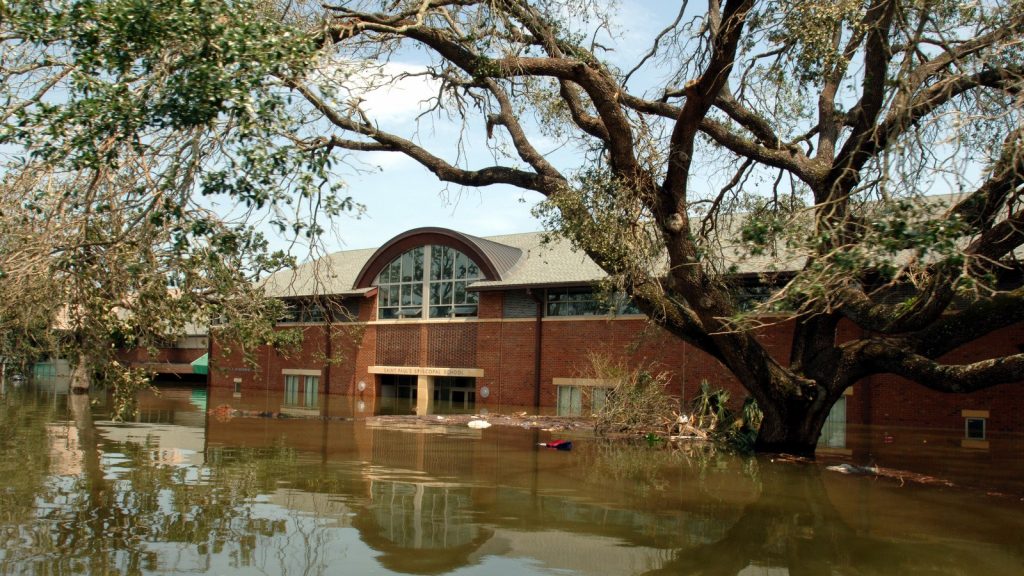Lawmakers Kill Plan To Relocate Flood Prone Schools
School located in dangerous flood zones will not be relocated after lawmakers nix a spending proposal helmed by the governor.

Long-lasting school closures aren’t just products of viral pandemics, they are also seen throughout the nation due to naturally occurring disasters. Due to climate change, the issue is getting much worse. Throughout America, nearly one in five students attended schools that were affected by federally-declared natural disasters between 2017 and 2019. That number is only projected to get worse. As a plethora of public schools face concerns with school building infrastructure, many were outraged with Tennessee lawmakers over their recent decision to nix funding in a bill that would finance an initiative to relocate public schools from life-threatening flood zones.
According to Chalkbeat, the spending bill that contained these flood zone funding previsions was recently amended to strip away $200 million that was originally proposed by the state’s Republican Gov. Bill Lee. Originally, the funds would have relocated 14 Tennessee schools located in flood zones. After nixing the $200 million from the legislation, the funds were shifted to the state’s rainy day fund, which now sits at a whopping $1.8 billion.

The sole reason given for the GOP-led Chambers’ decision to kill the proposal was due to confusion within the list of schools the state wished to relocate from flood zones. Two Humphrey County schools that were shattered this past summer were left off the list, while other schools that didn’t seem to have issues made the cut. In Memphis, the Wooddale Middle School was scheduled for relocation on the list, but school officials claim they are unaware that their school was in a flood zone. Jocquell Rodgers, an external affairs officer for the school said, “This has all been news to us.” Furthermore, Rodgers cited confusion, as the closely nearby high school was left off the list. But instead of adjusting and making changes to the list of 14 schools, legislators chose to ditch the effort completely.
Many advocates for flood control articulated shock and disdain for the committee’s decision to fail schools located in flood zones. One of those groups was a coalition of local officials, homeowners, and first responders grouped under Flood Ready Tennessee. One of those members, Dwain Land, a former Mayor of Dunlap, said, “We can only imagine how many more lives would have been lost in Waverly if the flooding had happened during school hours instead of on the weekend,” speaking of the Waverly floodings in August of 2021. Similarly, Senate Minority Leader Jeff Yarbro spoke ill of the decision after the vote. “If your school’s in a flood plain, you’d probably prefer spending money to move before the next big rain rather than pumping money into the rainy day fund,” the Democrat said.

Flooding is a huge concern in Tennessee’s major flood zones, and it often causes prolonged school closures throughout The Volunteer State. Last summer, a devastating flood placed nearly the entire town of Waverly underwater. Had it not been a weekend when this all occurred, hundreds of students would have been inside the classrooms that quickly were submerged and destroyed due to ferocious floodwater.
Those students that attended the now-wrecked school buildings were relocated into a repurposed warehouse. In the aftermath, Tennessee’s governor vowed “to ensure that no student in Tennessee attends a public school located in a flood zone.” This is what led Lee to call on lawmakers to fund a proposal to ensure schoolchildren did not attend schools located in flood zones in the first place.
For now, it appears the 14 schools originally slated for relocations will remain in place, regardless of their risk of being in flood zones. When asked about the decision, the governor’s press secretary, Casey Black, stated that Lee was “aware and monitoring” the changes to his spending plan, but declined to comment any further. Advocates are hopeful that once the bill lands on Lee’s desk for signage, the Governor will send it back to the chambers for further amendment. More than likely, parents who send their children to school in some of these dangerous locations surely hope that legislators will work around the clock to make needed amendments, and put student safety first.



